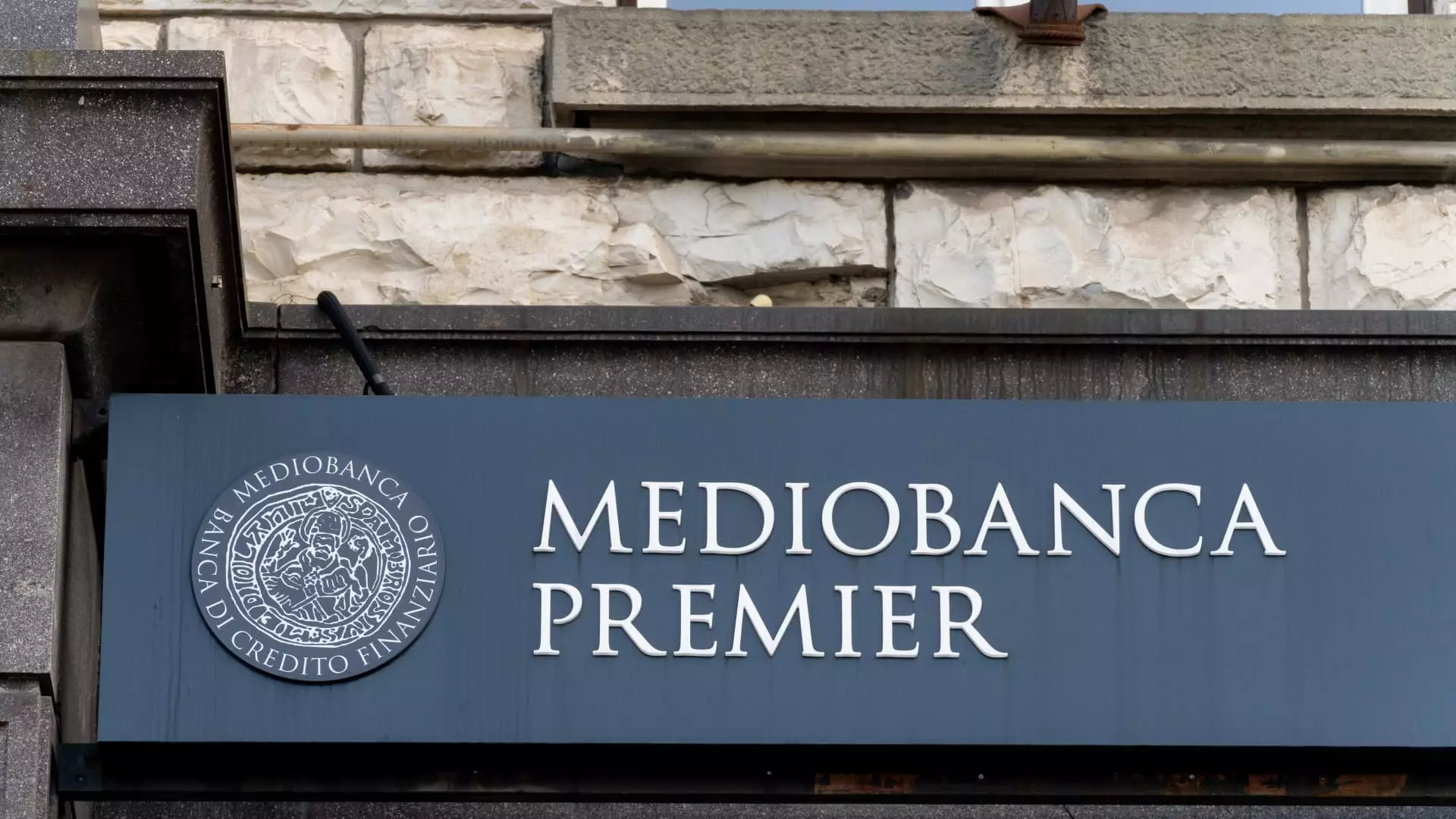In a significant turn of events in the Italian banking world, Mediobanca, a well-established lender, recently turned down a compelling 13-billion-euro takeover offer from Monte dei Paschi, a smaller yet historically significant peer. The refusal, which took place on a Tuesday, created ripples across the financial landscape, highlighted by warnings from Mediobanca about the potential ramifications of such a merger. According to the publicly issued statement, the offer lacked both industrial merit and financial logic, raising pressing concerns about its impact on Mediobanca’s core identity and the interests of its shareholders.
This rejection underscores the mounting tension in the Italian banking sector, which has recently witnessed a surge in consolidation activities as various entities attempt to stabilize their positions amidst ongoing economic unpredictability. Mediobanca’s perspective on the proposed merger reveals a confident stance regarding its operational integrity and reputation, emphasizing the lack of synergy with Monte dei Paschi.
Analysts were quick to highlight specific apprehensions regarding potential synergies from the merger, questioning whether the partnership could indeed benefit both institutions. A note penned by Barclays underscored the ambiguity surrounding the value that such a union might generate, pointing to a vague strategic complementarity. This sentiment resonates with not only Mediobanca’s shareholders but with a broader audience concerned about the long-term sustainability of any amalgamation.
Mediobanca voiced substantial apprehension over customer retention, particularly in lucrative sectors such as Wealth Management and Investment Banking. The lender warned that merging with Monte dei Paschi could jeopardize its appeal, given the high professional standards and independent expertise required to operate successfully in these areas. This aspect of the announcement serves as a critical reminder of the intricate balance between consolidating resources and maintaining a competitive edge in specialized markets.
To comprehend the dynamics at play, it is essential to delve into the storied past of Monte dei Paschi itself. Once heralded as the world’s oldest bank, Monte dei Paschi has weathered a tumultuous history marked by financial instability, culminating in a state bailout in 2017. The subsequent leadership change to Luigi Lovaglio in 2022 resulted in a notable turnaround, providing a semblance of stability for the beleaguered institution.
The Italian government has continuously maneuvered toward privatizing Monte dei Paschi, albeit with half-hearted success, currently maintaining an 11.73% stake after a recent dilution. As stakeholders attempt to carve out a viable path forward for this long-troubled entity, challenges continue to emerge, particularly concerning the involvement of significant investors tied to Mediobanca.
Mediobanca’s statement not only dismissed the takeover but also raised essential questions about potential conflicts of interest concerning key stakeholders, such as business magnates Francesco Gaetano Caltagirone and the Delfin holding company. Their significant cross-shareholdings in both Mediobanca and Monte dei Paschi may complicate shareholder interests, potentially skewing the rationale behind the proposal and creating tensions for other investors who fear misaligned priorities.
This scenario illustrates a broader reality within the banking sector, where private interests can dramatically shape corporate actions and decisions. Given the closely-knit nature of shareholder relationships, there is a palpable tension regarding whether such consolidative measures serve genuine collective benefit or merely reflect personal ambitions.
The Future Landscape of Italian Banking
As we analyze the broader implications of these developments, it becomes clear that the path ahead for both Mediobanca and Monte dei Paschi is fraught with uncertainty. The gradual consolidation of Italian banks may promise efficiency and stability, but as evidenced by Mediobanca’s response, the preservation of individual bank identities and operational strategies is paramount.
Furthermore, with UniCredit’s recent moves to stake a claim in Banco BPM, an additional layer of complication emerges for Monte dei Paschi as it seeks to stabilize under the weight of competing visions within Italy’s banking framework. With the Italian government navigating the fragile balance of supporting a robust banking sector while simultaneously attempting to divest its interests, observers are left to ponder the future of Italian banking as it grapples with historical legacies and new aspirations in a rapidly evolving economic climate.
While Mediobanca’s rejection of Monte dei Paschi’s takeover offer is emblematic of a complex interplay of financial strategies, shareholder interests, and historical baggage, it signals a crucial moment in the reconfiguration of Italy’s banking sector—one that could set the tone for future negotiations and partnerships.


Leave a Reply